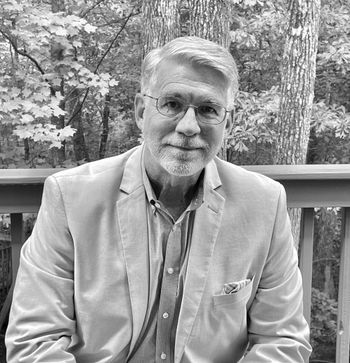PROF JENKINS: DEI refuses to die. Let’s kill it anyway.
Remember the apparently unkillable villain from those old slasher films? The one that the traumatized teens think they’ve finally finished off—until, as they sob and cling together in relief, he slowly rises up again in the background?
Remember the apparently unkillable villain from those old slasher films? The one that the traumatized teens think they’ve finally finished off—until, as they sob and cling together in relief, he slowly rises up again in the background?
That’s DEI—the “diversity, equity, and inclusion” machine on America’s college campuses. Just when we think we’ve hammered the last nail in its coffin—with multiple states banning it altogether, its chief proponent’s fall from grace, even the corporate world shying away from it—DEI keeps popping up, Jason-like, to terrorize us once again.
That unholy resurrection, or reincarnation, can take several forms. Some institutions surreptitiously defy their state’s elected officials and continue to push the DEI agenda, making at most only minor cosmetic changes to their programs.
[RELATED: Investigation reveals Texas A&M’s ‘defiance’ of state DEI ban}
Some pretend to follow the letter of the law by appearing to dismantle their formal DEI apparatus while actually farming out its functions to other campus entities, including academic departments.
As one prominent “race scholar” from the University of Texas put it, after his state banned DEI, “We do the work that we’ve always done. We just find different ways to do it.”
And then there are those institutions that simply rebrand, changing the terminology without altering the agenda.
One label that seems to be catching on is “belonging.” Indeed, some schools just tack that word onto their existing DEI bureaucracies, creating offices of “diversity, equity, inclusion, and belonging.”
Others, in states where the term “DEI” has become verboten, keep the same bureaucracy but rename it, resulting in something like Texas A&M University’s “Student Center for Advocacy and Belonging,” formerly known as the “Student Center for Diversity and Inclusion,” as my colleague at Campus Reform, Prof. Adam Ellwanger has reported.
Like its predecessors, “belonging” sounds good at first. Everyone wants to belong, right? And everyone should feel like they belong on campus, shouldn’t they?
Of course, thanks largely to the relentless reporting of Campus Reform and other conservative outlets, many people now recognize the inherent dishonesty of the three original DEI components.
They understand that “diversity” really means conformity, “equity” is not the same as equality, and “inclusion” is code for excluding the “wrong” kinds of people,
But “belonging” is still enjoying a honeymoon phase. Most people haven’t yet cottoned on to the fact that it’s just as fraudulent.
Ask yourself: When the “diversity” mavens talk about “belonging,” to whom are they referring? White people? Christians? Jews? Republicans? Hardly. And yet, if “belonging” doesn’t apply to everyone, it means nothing.
It’s just another Marxist Trojan Horse that, in Prof. Ellwanger’s words, “allows DEI content to be smuggled in under a different name.”
Once we accept that DEI, in whatever guise, isn’t going away anytime soon, what can campus conservatives do?
First, we must recognize the ongoing nature of the fight we’re in. It will probably take years, if not decades. When a state passes a law banning DEI, even if it’s our home state, we can’t just congratulate ourselves and walk off into the sunset.
[RELATED: More colleges are seeking to institutionalize DEI through rubrics, diversity statements]
We must continue to push until every single red state has passed comprehensive, effective anti-DEI legislation—and then take aim at passing similar legislation at the federal level.
We must also remain vigilant, especially on our own campuses, calling out violations of existing state laws whenever we see them and bringing them to the attention of elected officials, trustees, donors, and prospective students and their parents.
Campus Reform excels at this, so feel free to send in any tips. Our reporters can help you expose what’s going on at your institution. If you’re a student, perhaps you should consider becoming a Campus Reform correspondent yourself.
Finally, and perhaps most importantly, we can join brave colleagues and mentors, like my friend Professor David Bray at Kennesaw State University, in promoting viable alternatives to DEI, such as the “merit, fairness, and equality” (MFE) movement.
If MFE or something similar were to take root nationwide, among students, faculty, and other stakeholders, that would likely administer the killing blow to DEI’s bloated, undead corpse.

